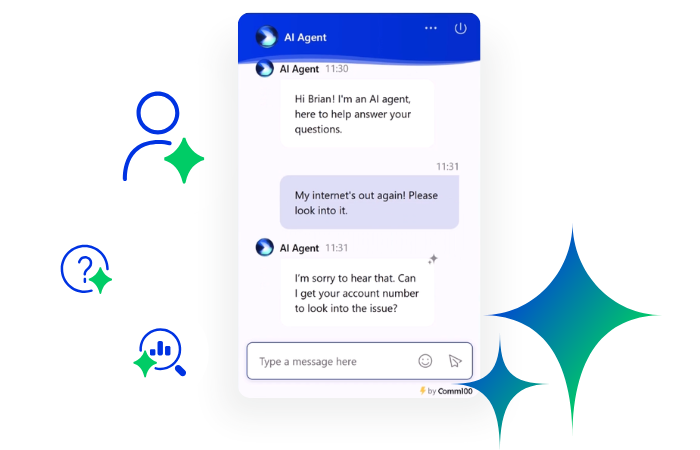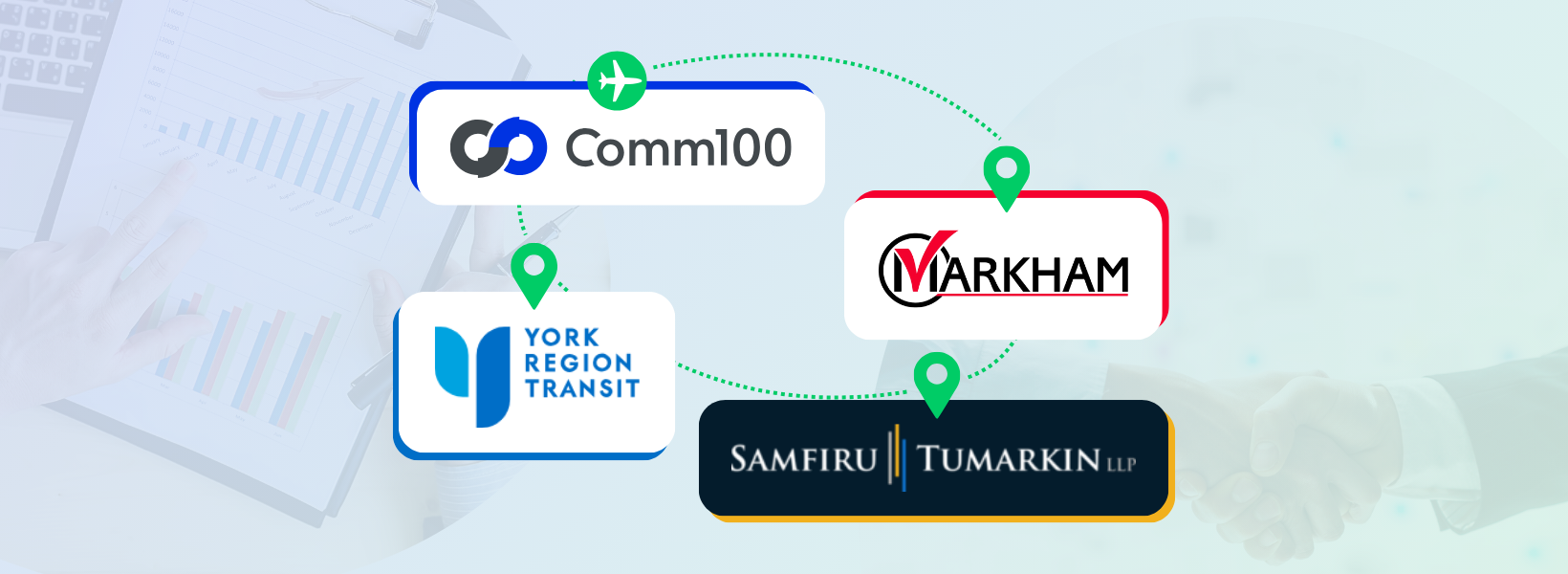Customer service departments are highly integrated and diverse teams that thrive on precision, productivity, and agility. With countless emails, queries, calls, messages, and social media mentions pouring-in from every direction; it becomes hard to not miss a single incoming query.
As a support agent, when the first thing you encounter on a regular office day is an overflowing inbox with nothing but customer grievances and queries, a subtle frown finds its way on your forehead.
Such an unstructured inflow of customer queries kills productivity and efficiency, which is the last thing you want to happen to your CS team – the people that are constantly in touch with your customers!
Why? Because highly engaged customers bring 3 times more annual value compared to other customers and buy 90% more frequently. And, believe us, an efficient, agile, and productive CS team is the key to customer engagement.
So, what is the best way to keep your inboxes clutter-free without missing out on any customer query or complaint? The answer is an email ticketing system.
Let’s find out how a robust email ticketing system makes your support teams more productive, leading to more engaged and more profitable customers.
What is an Email Ticketing System?
An email ticketing system automatically converts customer emails into support tickets to make sure that no incoming query slips through the cracks, as well as helping to keep your customer-facing inbox clutter-free and organized. A ticketing system will typically offer a shared inbox so all customer emails sent to various inboxes are collected into one. This makes team collaboration easy. Couple this with an automated workflow with detailed notes covering every step from first call to resolution, and you’ll have a much-improved email ticket management system.
Another impressive feature is the knowledge base. By allowing your visitors to find the answer to their question by themselves, you reduce ticket volume, and give your customers choice. This self-help feature is helpful in two ways. First, it empowers customers to find what they need without approaching your support staff for help. Second, it enables your support team to find answers to customer questions, almost instantly, and provide speedy resolution.
Thus, the email ticketing systems boost your support team’s productivity by offering everything in one place.
Now, let’s explore some top ways to use a robust and smart email ticketing system to bring more value to your organization.
7 Strategies to Boost Productivity with an Email Ticketing System
1. Use a Shared Inbox to Merge All Your Customer-facing Inboxes
A shared email inbox software is just like a dream-come-true for support teams as it merges all your customer-facing inboxes (support@, infor@, contact@, etc.) without missing a single incoming query. Apart from collecting all the information in one place, the shared inboxes also allow your team to discuss tickets using internal notes. The managers can track and monitor the agent by checking who is working on what. Finally, shared inboxes facilitate faster ticket resolution as an entire team works on the tickets.
If one agent cannot resolve a query, he can instantly escalate the issue to some expert agent without exchanging any subsequent emails or messages for the same.
Takeaway: Shared inboxes facilitate efficient and effortless team email management and de-clutter all your customer-facing inboxes. This, in turn, boosts the productivity of your support staff.
2. Provide Adequate Context to Your Support Agents
An email ticketing system collects all the incoming customer queries in one place. So, your customer support agents don’t have to look for communication history or context in previous chat records or in multiple other places. This way, no matter when a customer contacts your customer support staff, the entire communication history is available right before their eyes.
Takeaway: With the ticketing system, you never have to worry about having the right context or missing out on any customer’s communication history ever again.
3. Encourage Interdepartmental Collaboration
When it comes to customer support, no single person is capable enough to be a one-stop-solution. With highly volatile customer behavior and highly varied incoming queries, interdepartmental collaboration is the only way forward. An email ticketing system creates an effortless collaboration platform for as many people as you want.
Any complex customer issue can be broken into multiple child tickets and assigned to relevant departments for faster resolution.
Hence, you have an effective tool at your hand that facilitates interdepartmental collaboration and fosters an integrated culture in your organization.
Takeaway: When your employees have every speck of information in one place and a highly efficient platform to collaborate for delivering impeccable customer support, they look forward to such instances where they can contribute. An email ticketing software empowers them to do so without much ado!
4. Use Canned Responses for Faster Ticket Resolution
Canned responses are preset text templates that can be delivered via email, chat, and social media to offer a quick and effective response to your customers.
With the right ticketing system, you can choose from hundreds of ready-made templates or create new ones from scratch.
Canned responses can be used to answer commonly-asked questions. They can be tweaked and edited to deliver better and more personalized experiences to your customers.
Typing errors, the difference in tone, and the difference in the information included in replies – responses to mundane and repetitive customer problems mostly suffer in these areas. Canned responses help your agents to tackle them precisely and effectively.
Takeaway: Canned responses empower your CS team to deliver quick and efficient support to your customers. Canned responses also help in tackling repetitive and common queries coming from the customers, and help in boosting employee productivity.
5. Offer Real-time Assistance With Live Chat
A ticketing system can be easily integrated with live chat software to empower your team to deliver instant customer support round the clock. You can instantly address customer concerns and ensure they have a delightful support experience.
Live chat support makes customers 92% more satisfied as compared to the other support systems. It makes them feel valued and allows you to deliver delightful and personalized customer experiences.
Takeaway: Having live chat support makes your CS team even more efficient and productive as they can resolve simple queries instantly and make the customer feel more valued with real-time, personalized support. This ability to deliver real-time assistance paves the way towards customer satisfaction and customer loyalty.
6. Prioritize Urgent Support Tickets
A ticketing system allows you to assign priority to all support tickets. You can set their priority as High, Low, or Medium, depending on the urgency of an issue.
All high-priority tickets are displayed at the top so that your agents can instantly address them first and plan their day accordingly. Customer service managers can track the progress of urgent tickets and ensure they are resolved with adherence to set SLAs.
Takeaway: The email ticketing system enables you to address the most urgent queries first. This way, the customers in need of urgent assistance can get it instantly and enjoy a delightful experience with your brand.
7. Automate Repetitive & Manual Tasks
Your agents often have to resolve similar types of queries, again and again, leading to a mundane process. An email ticketing system automates your support workflow and many other repetitive tasks and boosts your support team’s productivity. You can automate the ticket distribution among available and active agents and set agent roles that define each agent’s access level. You can also allow your customers to rate a ticket by sharing automated feedback surveys once a ticket has been resolved.
Takeaway: The email ticketing system transforms your organization into a highly organized and productive ecosystem by automating the workflows, ticket assignment, ticket prioritization, and feedback surveys.
Make Support Agents Your Productive Heroes
Automation, collaboration, organization, and adequate context availability are the four pillars of an agile and productive business organization. An email ticketing system empowers you with all of them and many more business must-haves to delight your customers and foster a productive work culture.
So, invest in a smart and intuitive ticketing system and bring more value and more productivity to your organization.
Email, Social Media & SMS
Manage all your customer inquiries from email, social media, and SMS on one robust and easy-to-use platform. You’ll wonder why you never did it this way before.
Learn more
Comm100 Social & Messaging







